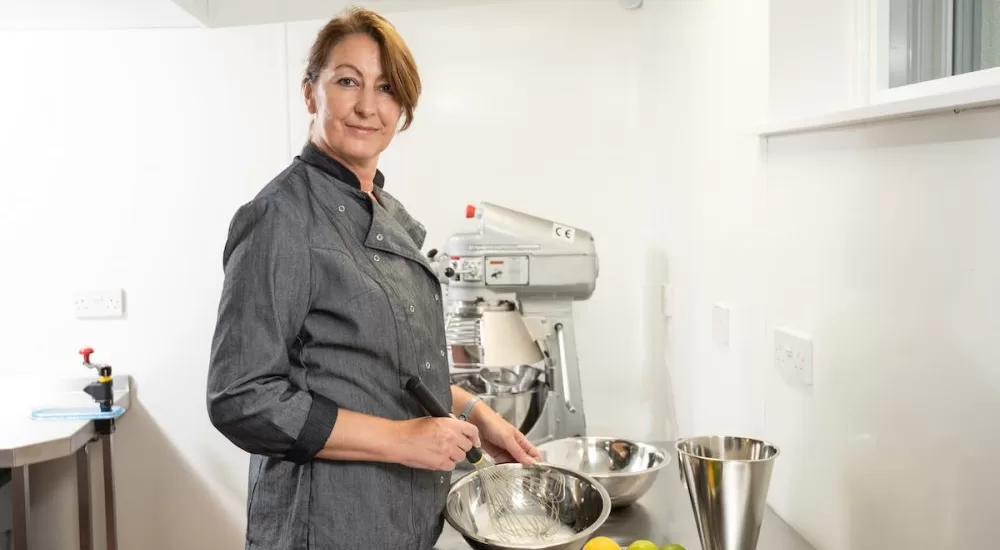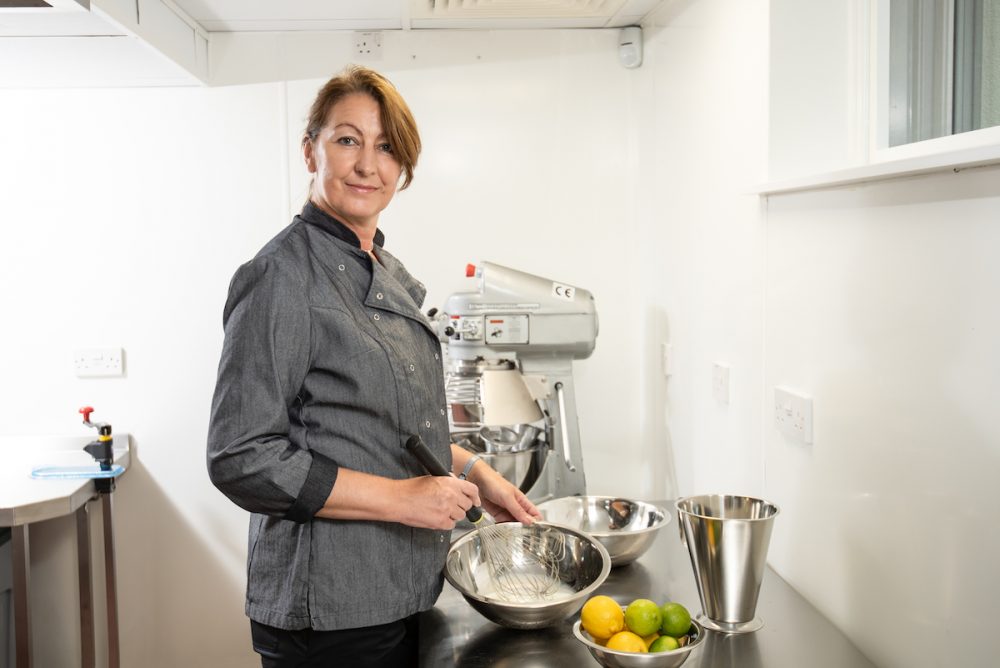
Healthy eating key to a happy old age
26 April 2021

Head Chef at Cramond Residence, Patsy McKenzie, looks at how a healthy diet can help those getting on in years.
Eating healthily is vital for everyone, but it becomes key as you get older. As you age, it becomes more important than ever to maintain a healthy weight and to get the energy and nutrients you need. Eating healthily also reduces the risks of getting chronic diseases, such as diabetes, and ensures that, if you get run-down or ill, you’ll have the best chance of recovering quickly.
Make it healthy and tasty
The good news is that eating healthily doesn’t need to involve food that’s boring and tasteless. It just means ensuring that you have a well-balanced, nutritious diet that is full of colour, variety and taste. It can include treats, such as sweets and cakes – so long as you don’t go overboard on the sugar and other ‘empty’ calories.
At the Residence, we make sure that people love the food we cook by first asking them what kind of food they’d like to eat. Residents let us know what their favourites are. They then get offered a wide choice of nutritious and well-balanced dishes at each meal. To ensure people get their five-a-day we also offer lots of fruit and vegetables – both at main meals and also when residents are served their tea and coffee in the mornings and afternoons.
Cooking can be a problem.
Unfortunately, organising and cooking a healthy diet can be tricky for people who cannot easily pop out to the shops. In addition, as people age, their appetite and interest in cooking can diminish. Because of this, many elderly people find that they fall back onto a rather limited and bland diet, often based on ready meals and frozen produce. This is particularly true for those who are unwell, recovering from illness or an operation, or who are living with dementia or other debilitating conditions.
For this reason, many of our residents find that, when they come and stay with us, they have a better diet than they had at home. They love being able to enjoy varied and tasty food which they haven’t had to prepare themselves. They also enjoy the fun of dining with their new friends and neighbours.

Choose the right ingredients
Ingredients and cooking techniques are key things to think about when it comes to healthy eating. For example, we cook in a way that ensures that as many of the nutrients in the food as are retained as possible. We also ensure that fats and salts are kept to a minimum (while ensuring that everything is nice and tasty). We choose healthy cuts of meat and fish and make meals from scratch using the best local ingredients.
Of course ageing brings with it a number of specific dietary issues, which any chef should take notice off. The elderly need their vitamins and minerals, so it is a good idea to use whole milk and to provide a wide range of fruit and veggies (as we do at Cramond).
Fibre is also important – this can be incorporated in the diet in many ways, including at breakfast in that great Scottish staple, porridge. Any allergies must also be taken into careful consideration. Medication can also have an impact of what people can eat; for example some medicines mean that people can’t drink cranberry or grapefruit juice.
Look out for changes in weight
As an elderly person, one of the key things to look out for is if your weight changes significantly (in either direction). This might indicate that something is wrong and you should check with your doctor. When people lose weight at Cramond, the kitchen works with that person’s carers to help them re-gain lost weight using a fortified diet that includes delicious fortified smoothies.
If you, or your loved one, is living with Dementia, then meal times may well present additional challenges. Some people with dementia can’t recognise food on the plate and may begin to forget how to eat with cutlery. At Cramond we find that putting food on brightly coloured plates helps to make it stand out. Tasty finger food is also a good solution for those whose motor skills are failing.

